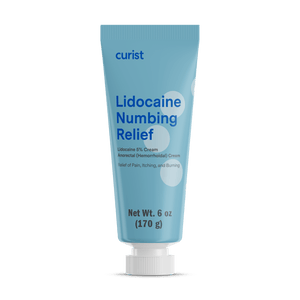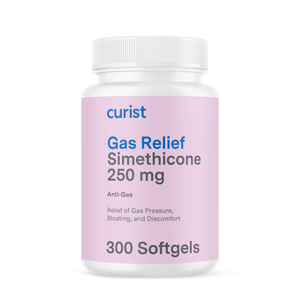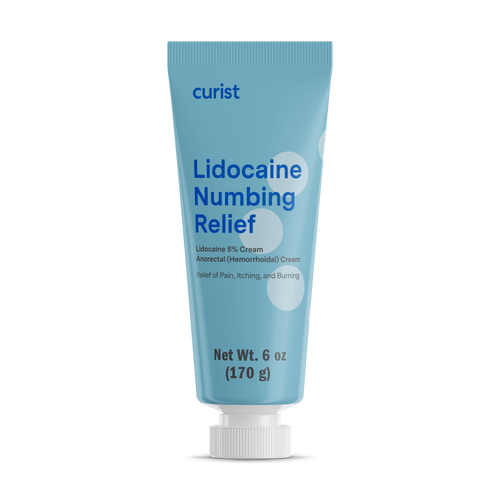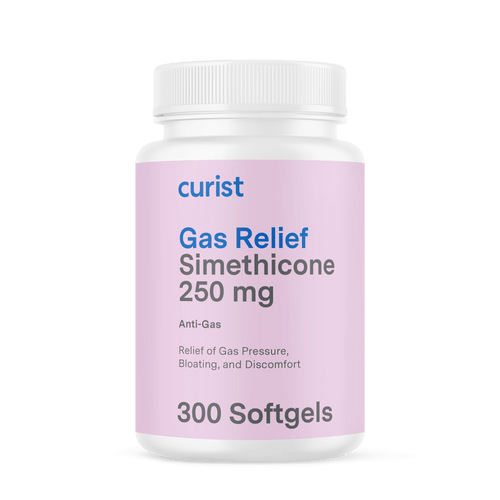by Dr. Waverly Yang, Pharm D, Curist Pharmacy Advisor and Dr. Marc Goldstein, MD, Curist Medical Advisor
Curist delivers over-the-counter medicines to your door at a fraction of the price of traditional brands. We hope everyone stays safe and healthy during this time.
There’s a lot of conflicting news recently about whether or not ibuprofen (commonly known as brand Advil or Motrin) is recommended for patients with the novel coronavirus (SARS-CoV2), so what exactly is the verdict?
What is Ibuprofen? What’s an NSAID? Advil vs Ibuprofen?
Ibuprofen is a medicine that belongs to a group of drugs called nonsteroidal anti-inflammatory drugs (NSAIDs), which are used to reduce fever and treat pain and inflammation. Advil and Motrin are common known brands of ibuprofen. Since fever is a typical symptom associated with coronavirus, some people infected with coronavirus have used NSAIDs to help bring down fevers and relieve discomfort.
Why The Concern About Ibuprofen (Advil or Motrin) to Treat Coronavirus?
On March 14, 2020, the Government of France announced that NSAIDs like ibuprofen had “grave adverse effects” on patients affected by COVID-19, and the French Health Minister Oliver Veran tweeted that taking anti-inflammatory drugs like ibuprofen and cortisone could be an “aggravating factor for the infection.”
The French Health Minister’s warning appeared to be based on remarks by an infectious diseases doctor in southwest France who cited four cases of young COVID-19 patients with no underlying health problems who developed serious symptoms after using NSAIDs in the early stage of their symptoms.
German virologist Jonas Schmidt-Chanasit of the Bernhard Nocht Institute for Tropical Medicine (BNITM) has also weighed in and cautioned against the potential negative effects of ibuprofen, aspirin, and other NSAIDs. However, he also stated that there is no established connection between taking ibuprofen and severe cases of COVID-19.
These controversial statements by the French government have given rise to numerous, conflicting opinions by medical professionals about whether ibuprofen is a safe treatment for certain symptoms of COVID-19.
Does Ibuprofen (Advil or Motrin) Really Make Coronavirus Worse?
COVID-19 is a new viral infection, and there simply isn’t enough data to prove ibuprofen is unsafe in treating its symptoms. The World Health Organization (WHO) said, based on currently available information, that there is “no evidence of severe adverse events” as a result of using NSAIDs like ibuprofen. This statement is based on a comprehensive review of multiple medical databases and studies for reports of negative effects due to NSAIDs in acute viral respiratory infections. Despite not having direct evidence from COVID-19 patients, the WHO’s current stance is that they do not recommend avoiding ibuprofen for COVID-19 symptoms.
The European Medicines Agency, which is the healthcare regulator of the European Union, said there is “currently no scientific evidence establishing a link between ibuprofen and worsening of COVID‑19.”
According to Dr. Anthony Fauci, the head of the US National Institute of Allergy and Infectious Diseases, “bottom line is I have not seen any firm data to indicate there's a problem or to prove that there's not a problem.”These statements, however, should not be taken as an indication that ibuprofen is 100% safe or necessarily recommended in treating COVID-19 symptoms. Many doctors typically avoid unnecessary ibuprofen use because, in rare cases, the drug can cause serious side effects, such as kidney damage or bleeding in the stomach and intestines.
So, Why The Claims That Ibuprofen (Advil or Motrin) is Not Safe to Treat Coronavirus Symptoms?
Again, there is insufficient data to support these claims. In a recent article, some researchers hypothesized that ibuprofen and other NSAIDs can perhaps enhance the virus latching on to human cells, particularly in the lungs and therefore making one more susceptible to coronavirus infection.
Nevertheless, doctors still recommend taking a fever reducer, including NSAIDs or acetaminophen, for fevers approaching 104 degrees Fahrenheit. Doctors may also be concerned about the side effects of NSAIDs, such as an increased risk of kidney damage in people who have certain medical conditions or are taking specific medications. Talk to your doctor if you are concerned about whether ibuprofen is safe for you.
Should I Stop Taking Ibuprofen (Advil or Motrin) If I’m Concerned About Coronavirus?
If you are already taking ibuprofen for a certain health condition because your doctor instructed you to do so, do not stop taking ibuprofen without consulting your doctor first. If you are exhibiting the following symptoms, then contact your doctor immediately about being tested for coronavirus:
- Fever or having a body temperature over 100.4 degrees Fahrenheit
- Cough
- Shortness of breath*
*If you are experiencing increasing shortness of breath or difficulty breathing, seek emergency medical attention.
Acetaminophen vs Ibuprofen: What Do I Take Instead of Ibuprofen for Coronavirus Fever?
Although there is not enough evidence to support the claim that ibuprofen can worsen coronavirus infections, it may be safest to consider alternatives, unless otherwise instructed by a physician.
If you’ve already spoken to your doctor and plan to treat your fever at home, you may consider taking acetaminophen, available at Curist here. Unless otherwise instructed by your doctor, make sure to take no more than the recommended dose of acetaminophen, and do not go over the daily limit (4,000 mg / day) to avoid liver damage.
For more information about coronavirus, please visit the CDC website. As always, if you are not feeling well, please reach out to your medical provider or call 911.












